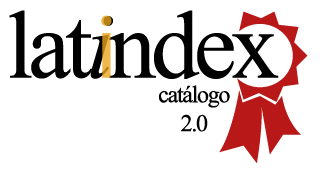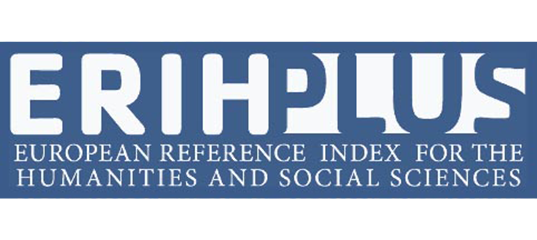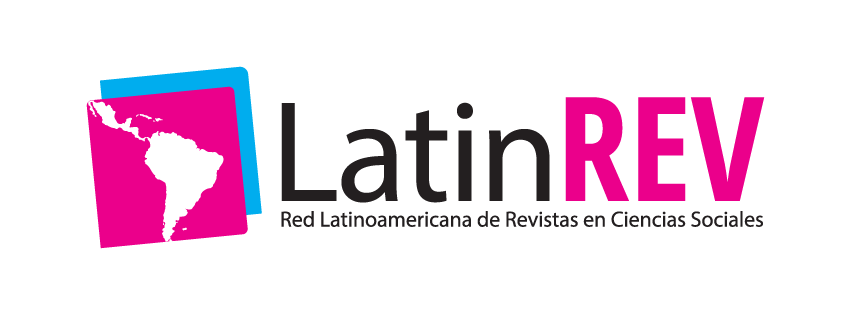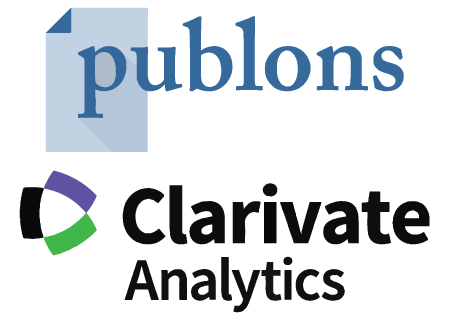Ecosistema tecnológico para el desarrollo de las habilida-des profesionales de los docentes de perfil agropecuario
DOI:
https://doi.org/10.46480/esj.4.2.78Palabras clave:
Ecosistema tecnológico, aprendizaje, extensionismo agrario, proceso docente - educativoResumen
Un ecosistema es una comunidad de seres vivos cuyos procesos vitales están interrelacionados y su desarrollo se basa en los factores físicos del medio ambiente. La definición de ecosistema tecnológico varía de unos autores a otros, pero todos están de acuerdo en un punto fundamental: existe una clara relación entre las características de un ecosistema natural y un ecosistema tecnológico en cualquiera de sus variantes. El uso pasado de las TIC en procesos educativos se caracterizó por la automatización, que condujo al desarrollo de plataformas para la formación (LMS). Sin embargo, el presente está protagonizado por la integración, en la que el reto está en conectar y relacionar las distintas herramientas y servicios para la labor docente, y cuyo resultado último son ecosistemas tecnológicos, útiles porque ofrecen interoperabilidad semántica de sus componentes para obtener una mayor funcionalidad y sencillez en el proceso docente – educativo y en particular en el del aprendizaje. En el presente trabajo se propone como objetivo desarrollar un ecosistema tecnológico para el desarrollo de las habilidades profesionales de los docentes de perfil agropecuario, con el fin de injertar un potencial para el extensionismo agrario.
Descargas
Referencias
Bienkowski, M., Feng, M., & Means, B. (2012). Enhancing teach-ing and learning through educational data mining and learning analytics: An issue brief, 1–57. US Department of Education, Office of Educational Technology.
Buschmann, F., Meunier, R., Rohnert, H., Sommerlad, P., & Stal, M. (1996). Patternoriented software architecture: a system of patterns. Chichester: John Willey & Sons.
Chang, E., & West, M. (2006). Digital Ecosystems a Next Gen-eration of the Collaborative Environment. 8th International Conference on Information Integration and Web-based Application & Services.
CHEN, W., & Chang, E. (2007, 4-7 June). Exploring a Digital Ecosystem Conceptual Model and Its Simulation Prototype. Trabajo presentado en Industrial Electronics, 2007. ISIE 2007. IEEE International Symposium on.
Dhungana, D., Groher, I., Schludermann, E., & BIFFL, S. (2010). Software ecosystems vs. natural ecosystems: learning from the ingenious mind of nature Proceedings of the Fourth Eu-ropean Conference on Software Architecture: Companion Volume (pp. 96-102). New York, NY, USA: ACM.
Domingo, M.G., & Forner, J.A.M. (2010). Expanding the Learn-ing Environment: Combining Physicality and Virtuality-The Internet of Things for eLearning. 10th IEEE International Con-ference on Advanced Learning Technologies (ICALT).
European-Commission. (2006). Digital Ecosystems: The New Global Commons for SMEs and local growth.
Fidalgo-Blanco, Á., Sein-Echaluce, M. L., & García-Peñalvo, F. J. (2014). Knowledge Spirals in Higher Education Teaching Innovation. International Journal of Knowledge Manage-ment, 10(4), 16-37.
Fidalgo-Blanco, Á., Sein-Echaluce, M. L., & García-Peñalvo, F. J. (2014). Knowledge Spirals in Higher Education Teaching Innovation. International Journal of Knowledge Manage-ment, 10(4), 16-37.
García-Holgado, A., & García-Peñalvo, F. J. (2013). The evo-lution of the technological ecosystems: an architectural proposal to enhancing learning processes Proceedings of the First International Conference on Technological Ecosys-tem for Enhancing Multiculturality (TEEM’13) (Salamanca, Spain, November 14-15, 2013) (pp. 565-571). New York, NY, USA: ACM.
García-Holgado, A., & García-Peñalvo, F. J. (2013). The evo-lution of the technological ecosystems: an architectural proposal to enhancing learning processes Proceedings of the First International Conference on Technological Ecosys-tem for Enhancing Multiculturality (TEEM’13) (Salamanca, Spain, November 14-15, 2013) (pp. 565-571). New York, NY, USA: ACM.
García-Holgado, A., & García-Peñalvo, F. J. (2014a). Archi-tectural pattern for the definition of eLearning ecosystems based on Open Source developments. En J. L. Sierra-Rodríguez, J. M. Dodero-Beardo, & D. Burgos (Eds.), Proceed-ings of 2014 International Symposium on Computers in Edu-cation (SIIE) (Logroño, La Rioja, Spain, November 12-14, 2014) (pp. 93-98): Institute of Electrical and Electronics Engineers. IEEE Catalog Number CFP1486T-ART.
García-Holgado, A., & García-Peñalvo, F. J. (2016). Architec-tural pattern to improve the definition and implementation of eLearning ecosystems. Science of Computer Program-ming, 129, 20-34. http://dx.doi.org/10.1016/j.scico.2016.03.010
García-Holgado, A., & García-Peñalvo, F. J. (2017a). Defini-ción de ecosistemas de aprendizaje independientes de plataforma IV Congreso Internacional sobre Aprendizaje, Innovación y Competitividad (CINAIC 2017) (Zaragoza, Spain, October 4-6, 2017).
García-Holgado, A., & García-Peñalvo, F. J. (2017b). A Met-amodel Proposal for Developing Learning Ecosystems. En P. Zaphiris & A. Ioannou (Eds.), Learning and Collaboration Technologies. Novel Learning Ecosystems. LCT 2017. Lecture Notes in Computer Science (Vol. 10295). Cham: Springer.
García-Holgado, A., & García-Peñalvo, F. J. (2017c). Prelimi-nary validation of the metamodel for developing learning ecosystems Proceedings of the Fifth International Confer-ence on Technological Ecosystems for Enhancing Multicul-turality (TEEM’17) (Cádiz, Spain, October 18-20, 2017). New York, NY, USA: ACM.
García-Peñalvo, F. J., & García-Holgado, A. (Eds.). (2017). Open Source Solutions for Knowledge Management and Technological Ecosystems. IGI Global.
García-Peñalvo, F. J., Zangrando, V., García-Holgado, A., Conde, M. Á., Seone Pardo, A. M., Alier Forment, M., … Mi-nović, M. (2012). TRAILER project overview: Tagging, ecogni-tion and acknowledgment of informal learning experienc-es. Trabajo presentado en 2012 International Symposium on Computers in Education (SIIE), Andorra La Vella, Andorra. October 29-31, 2012. http://ieeexplore.ieee.org/stamp/stamp.jsp?tp=&arnumber=6403200
Gardner, H. (2011). Multiple intelligences: Reflections after thirty years. Washington, DC: National Association of Gifted Children Parent and Community Network.
Hernández-García, Á., & Conde, M. Á. (2014). Dealing with complexity: educational data and tools for learning ana-lytics. En: Proceedings of the Second International Confer-ence on Technological Ecosystems for Enhancing Multicul-turality (TEEM '14), 263–268. ACM, New York, NY, USA.
Laanpere, M. (2012). Digital Learning ecosystems: rethinking virtual learning environments in the age of social media. Trabajo presentado en IFIP-OST’12: Open and Social Tech-nologies for Networked Learning, Taillin.
Latorre Beltran, A. (2003). La investigación-acción: Conocer y cambiar la práctica educativa (Vol. 179): Grao.
Lerís, D., & Sein-Echaluce, M.L. (2011). La personalización del aprendizaje: un objetivo del paradigma educativo cen-trado en el aprendizaje. Arbor: Ciencia, pensamiento y cul-tura, 187(Extra 3), 123–134.
Lewin, K. (1946). Action research and minority problems. Jour-nal of social issues, 2(4), 34-46.
Llorens, F., Molina, R., Compañ, P., & Satorre, R. (2014). Techno-logical Ecosystem for Open Education. En: R. Neves-Silva, G.A. Tsihrintzis, V. Uskov, R.J. Howlett & L.C. Jain (Eds.), Smart Digital Futures 2014.Frontiers in Artificial Intelligence and Applications, Vol. 262, 706–715. IOS Press.
Long, P. D., & Siemens, G. (2011). Penetrating the Fog: Analyt-ics in Learning and Education. EDUCAUSE Review, 46(5), 31–40.
Lungu, M. F. (2008). Towards reverse engineering software ecosystems. Trabajo presentado en Software Maintenance, 2008. ICSM 2008. IEEE International Conference on.
Lungu, M. F. (2009). Reverse engineering software ecosystems. Università della Svizzera italiana.
MENS, T., CLAES, M., GROSJEAN, P., & SEREBRENIK, A. (2014). Studying evolving software ecosystems based on ecologi-cal models. En T. Mens, A. Serebrenik, & A. Cleve (Eds.), Evolving Software Systems (pp. 297-326). Berlin, Heidelberg: Springer.
Pata, K. (2011). Meta-design framework for open learning ecosystems. Trabajo presentado en Mash-UP Personal Learning Environments (MUP/PLE 2011), Open University of London.
Phillips, R., Maor, D., Preston, G., & Cumming-Potvin, W. (2012). Exploring Learning Analytics as Indicators of Study Behav-iour. Paper presented at the World Conference on Educa-tional Multimedia, Hypermedia and Telecommunications 2012, Denver, Colorado, USA.
Posñak I.P. y Malashevich V.V. (1979). La organización y me-todología de la enseñanza en las escuelas de formación técnico profesional. Ciudad de la habana. Cuba: Editorial Pueblo y Educación.
Retalis, S., Papasalouros, A., Psaromiligkos, Y., Siscos, S., & Kargidis, T. (2006). Towards networked learning analytics—A concept and a tool. Proceedings of the Fifth international conference on networked learning.
UNESCO. (2005). UNESCO World Report: Towards Knowledge Societies. Paris: UNESCO Publishing.
WOOD-HARPER, T. (1985). Research methods in information systems: using action research. Research methods in infor-mation systems, 169-191.
Yu, E., & Deng, S. (2011). Understanding Software Ecosystems: A Strategic Modeling Approach. En S. Jansen, J. Bosch, P. Campbell, & F. Ahmed (Eds.), IWSECO-2011 Software Eco-systems 2011. Proceedings of the Third International Work-shop on Software Ecosystems. Brussels, Belgium, June 7th, 2011. (pp. 65-76). Aachen, Germany: CEUR Workshop Pro-ceedings.
Descargas
Publicado
Número
Sección
Licencia
Los autores conservan los derechos sobre sus artículos y, por tanto, son libres de compartir, copiar, distribuir, ejecutar y comunicar públicamente su obra en sus sitios web personales o en repositorios institucionales, después de su publicación en esta revista, siempre que se proporcione la referencia bibliográfica que acredite su publicación original.































